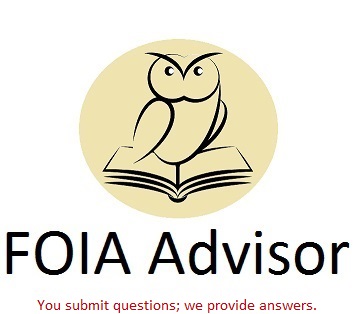Q. I saw three FOIA requests get denied in full:
1. This request for communications between the Consumer Financial Trade Commission (CFTC) and an outside entity that had received a no action letter that was later revoked was denied in full, claiming Exemption 7(A).
2. This request for all DOJ’s Office of Inspector General reports was denied in full, claiming the request doesn't describe the records sought.
3. This request for FOIA requests received by the Drug Enforcement Administration about Paul Le Roux was denied in full, claiming Exemptions 6 and 7(C).
Do these seem like reasonable denials to you? Any advice on how to proceed?
A. I'll briefly comment on each request in turn.
1. Yes, the CFTC's Exemption 7(A) denial seems reasonable to me on its face. As you probably know, PredictIt filed a lawsuit on September 9, 2022. challenging CFTC's revocation of its No-Action Letter. Public disclosure of the three categories of requested records could very well interfere with the government's legal defense in that pending case. The exemption would not, of course, apply to CFTC's August 4, 2022 letter to PredictIt, because CFTC posted it online. But keep in mind that an agency relying upon Exemption 7(A) need not justify its withholdings on a document-by-document basis, but may focus upon categories of records.
2. Either the request to DOJ/OIG is unreasonably described (i.e., vague) or the request is moot, I'm not sure which is the case. To wit, DOJ/OIG publishes reports on its website and those reports are searchable by date, keyword, type, and component. If the request seeks documents other than those published reports, it is entirely unclear to me what OIG is supposed to look for.
3. The DEA appears to have reflexively issued a privacy Glomar response, which it typically does when asked for records about a third party. An administrative appeal might be successful if accompanied by evidence that DOJ prosecutors or DEA officially acknowledged that Mr. Le Roux had a connection to DEA. First-hand evidence, e.g., press release, trial transcripts, or other court filings, would be more persuasive than media reporting. Note that even if DOJ’s Glomar response were to be defeated, that does not mean the government would be required to release responsive records. Rather, the government would be required to conduct a search, acknowledge whether records existed or not, and process any responsive records with all of the exemptions at its disposal.
